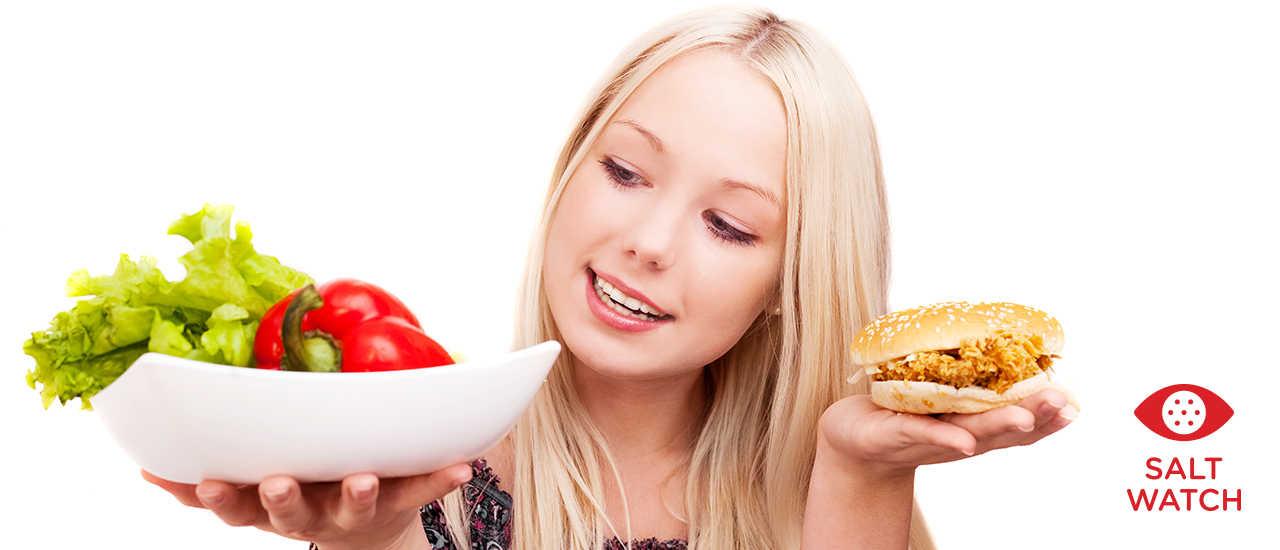Reducing the amount of food you eat at each meal, even gradually, will help you to lose and maintain a healthy weight. There’s an additional pay-off too though; smaller portions means you also eat less salt.
And while a reduced salt intake isn’t as easy to measure as weight loss, it may save your life. This is because too much sodium (sodium is the mineral that makes up 40% of salt) in your diet can increase your blood pressure, which puts you at a greater risk of heart disease or stroke, along with other health complications.
Reduce your salt intake slowly and steadily
Luckily, it appears that our salt cravings are a result of what we eat. No foods found in nature are salty, it’s a taste that we’ve acquired because more and more processed foods contain salt. The good news is it’s entirely possible to break the habit. If you find yourself craving salty foods, satisfy the urge by eating increasingly smaller portions, and your cravings will decrease.
Fill up with fresh vegetables and salad
When cutting down on your meal portions and salted foods on your plate, there’s no reason for you to go hungry. Fill up the rest of your plate with fresh vegetables and salad, dressed with olive oil, balsamic vinegar, and lemon or lime juice. By using strong, bold flavours, you don’t miss the lack of salt.
Source: Help Guide
This nationwide Salt Watch campaign is an initiative of the Heart and Stroke Foundation South Africa.
Salt Watch is a proud partner of Hello Doctor. Take a look here to find out more about Salt Watch.

